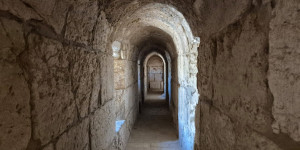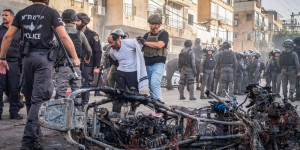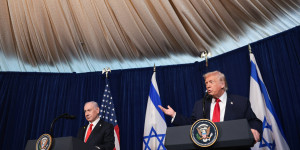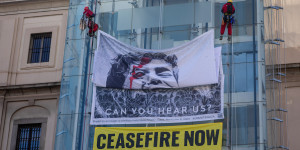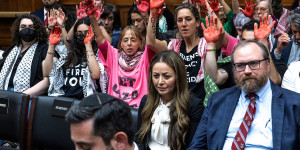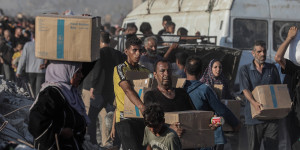BBC report on Lebanon strikes omits Hezbollah casualties
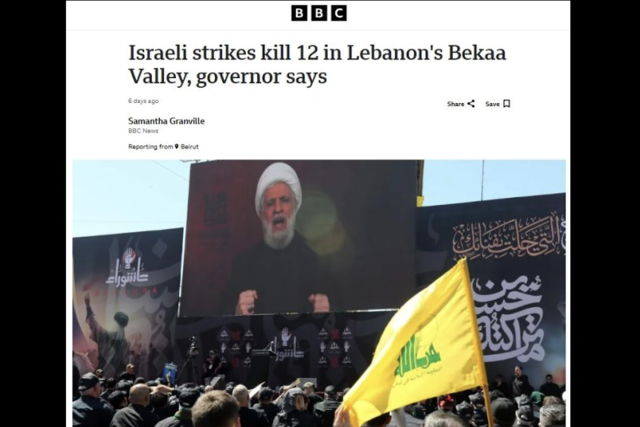
On July 15, the BBC News website published a report by a relatively new correspondent at the corporation’s Beirut bureau, Samantha Granville.
Titled “Israeli strikes kill 12 in Lebanon’s Bekaa Valley, governor says”, that report closes with a refreshingly fact-based portrayal of the ceasefire between Israel and Lebanon which came into effect in November 2024 and a topic that the BBC more often than not avoids – UN SC resolution 1701.
“The basis of the ceasefire agreement between the Israeli and Lebanese governments, brokered by US mediators in November, was the full implementation of UN Security Council resolution 1701, which ended the last war in 2006.
Hezbollah was required to withdraw its forces to positions north of the Litani River – approximately 30km (20 miles) from the Israeli border – leaving only the Lebanese army and United Nations peacekeepers authorized to operate with arms in that area.
Israel was required to fully pull its forces out of Lebanon, but it has maintained a military presence at five sites in the south that it considers strategically important.
The agreement also noted that the resolution reaffirmed previous Security Council calls for the “disarmament of all armed groups” in Lebanon.”
Granville begins her report by telling readers that:
“At least 12 people have been killed in Israeli air strikes in Lebanon’s eastern Bekaa Valley, a regional governor says.
Seven Syrians, including a family of five, and three Lebanese were killed when the Wadi Faara area was hit, Baalbek-Hermel Governor Bachir Khodr wrote on X. The other two deaths were reported in Shmustar.”
On the topic of the background to those strikes, readers find quotes from IDF spokespersons:
“The Israeli military said it had struck a number of military compounds belonging to the armed group Hezbollah, including training camps affiliated to its elite Radwan Force. […]
The Arabic-language spokesperson of the Israel Defense Forces (IDF), Lt Col Avichay Adraee, said on X that Tuesday’s strikes hit several Hezbollah targets.
“As part of the strikes, military compounds belonging to the Radwan Force have been targeted, where terrorist operatives and warehouses used to store combat equipment employed by Hezbollah have been identified,” Adraee said. […]
The IDF asserted that Hezbollah’s storage of weapons and military activities in the Bekaa Valley constituted a “blatant violation of the understandings between Israel and Lebanon and constitute a future threat to the State of Israel”.”
The report also presents a counterclaim from a Hezbollah affiliated media outlet:
“Hezbollah has not yet commented on the attacks, although its Al-Manar TV channel said they constituted violations of both the ceasefire and Lebanon’s sovereignty.”
Members of the BBC’s audience trying to understand which of those claims of violations of the ceasefire is correct would of course have found it helpful to have some background information on the topic of Hezbollah’s serial violations of the November 2024 ceasefire agreement.
“Israel has flagged upward of 1,200 violations by Hezbollah in its report to the US-led five-country monitoring panel tasked with supervising the implementation of the ceasefire agreement.
Of these, 650 violations were relayed to the Lebanese army for handling, while the rest of the times the IDF responded by attacking the violators.
The Lebanese army has identified 390 additional violations on its own initiative and filed a report saying that it had handled them.”
Reader understanding of the story would of course also have benefitted had some information been provided on the relevant topic of the role of the Radwan Unit in Hezbollah’s plan named “Conquest of the Galilee”.
Notably, Granville’s report was not amended or updated after its initial publication. Other media outlets, including Reuters, noted later on the same day that five of those killed in the strikes were Hezbollah operatives:
“Heavy Israeli airstrikes killed 12 people, including five Hezbollah fighters, in eastern Lebanon on Tuesday, a security source in Lebanon said, in what Israel said was a warning to the Iran-backed group against trying to re-establish itself.” [emphasis added]
The “permanent public record” – as the BBC describes its online archive – therefore tells members of the public that “12 people have been killed in Israeli air strikes” but does not inform them of the relevant fact that five of them were Hezbollah combatants.

Hadar Sela was born in the north of England and has lived in Israel for over three decades. She has a special interest in the influence of the media on the British public’s perceptions of the Middle East and the Islamist networks operating in the UK and has written pre-emptive reports on several anti-Israel campaigns, including the flotillas and the Global March to Jerusalem in March 2012. Hadar’s work has been published in the Jerusalem Post, The Algemeiner, The Commentator, MERIA Journal and at Harry’s Place, among others.




